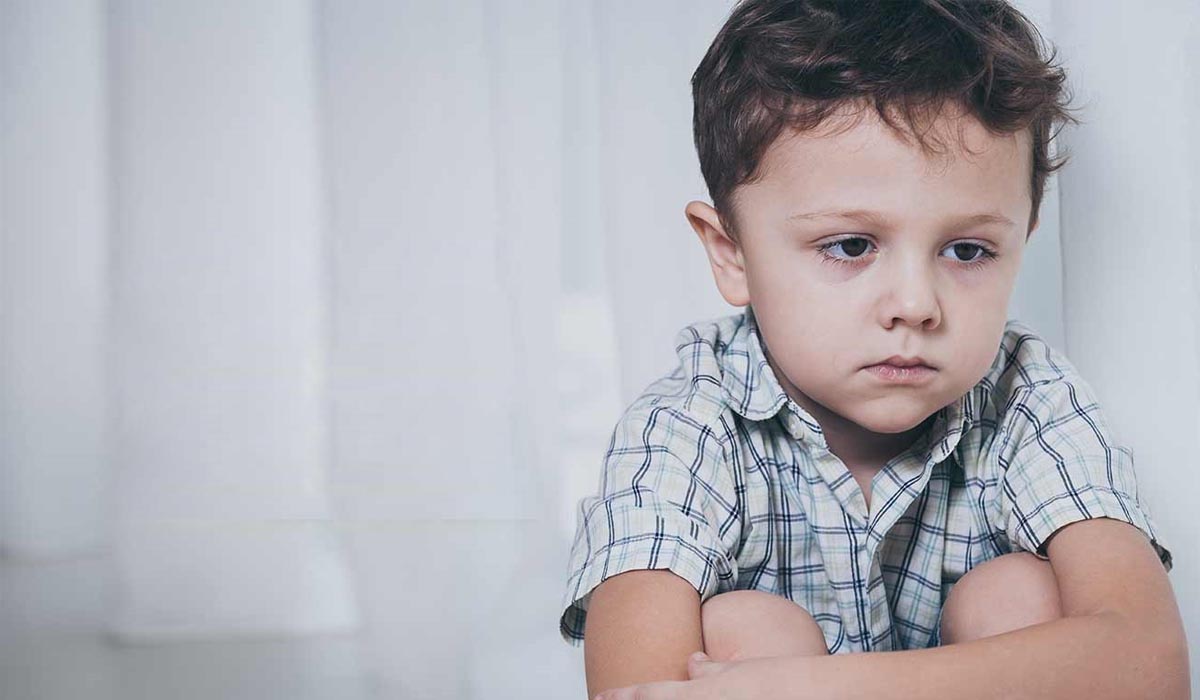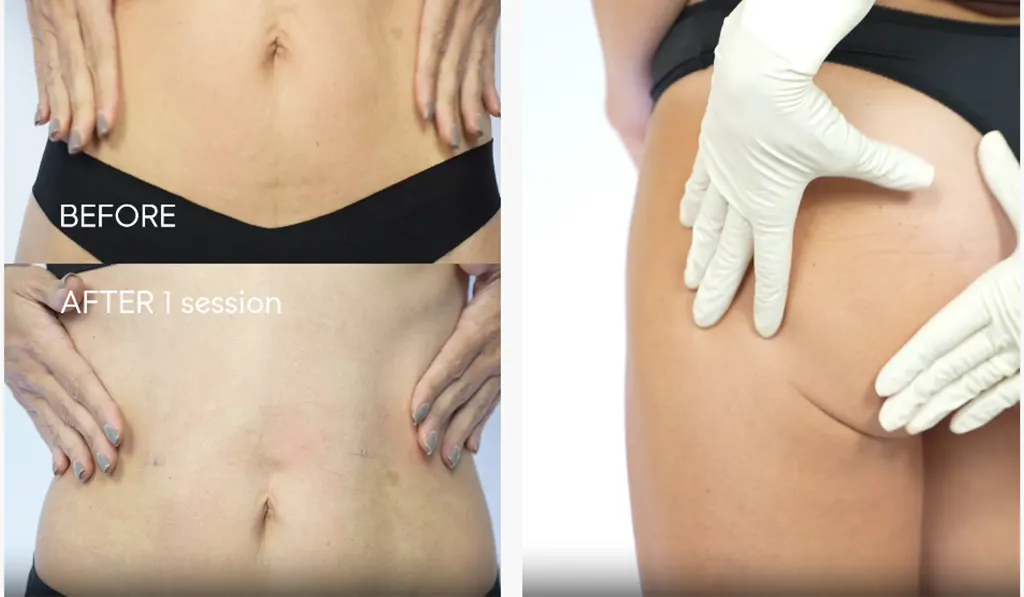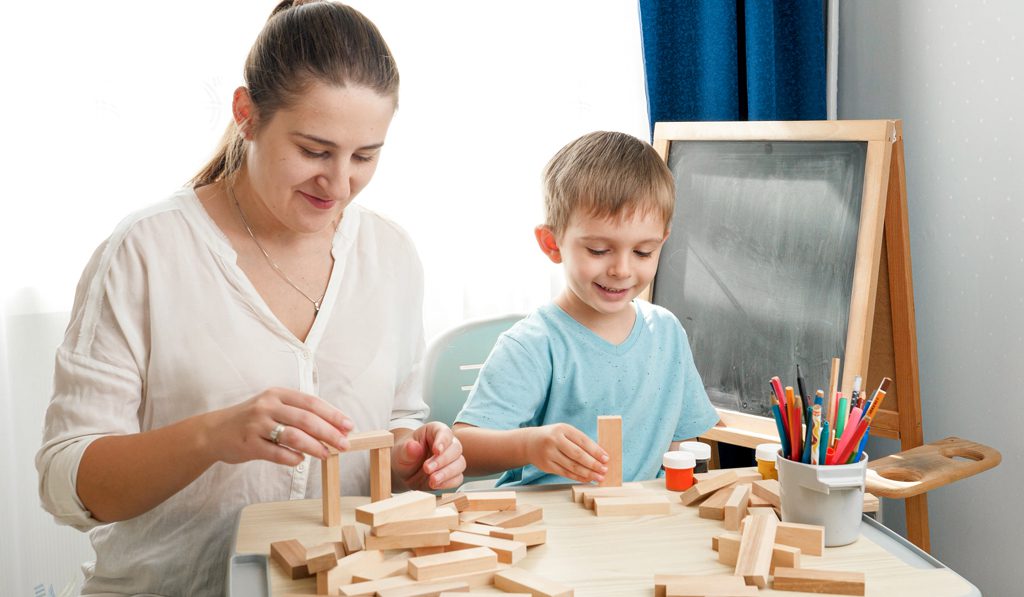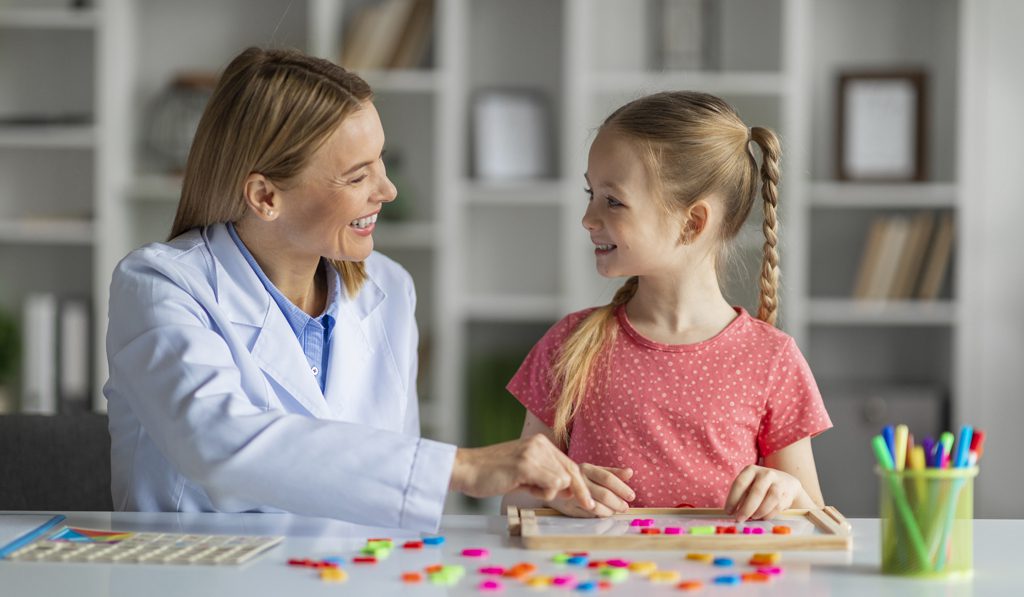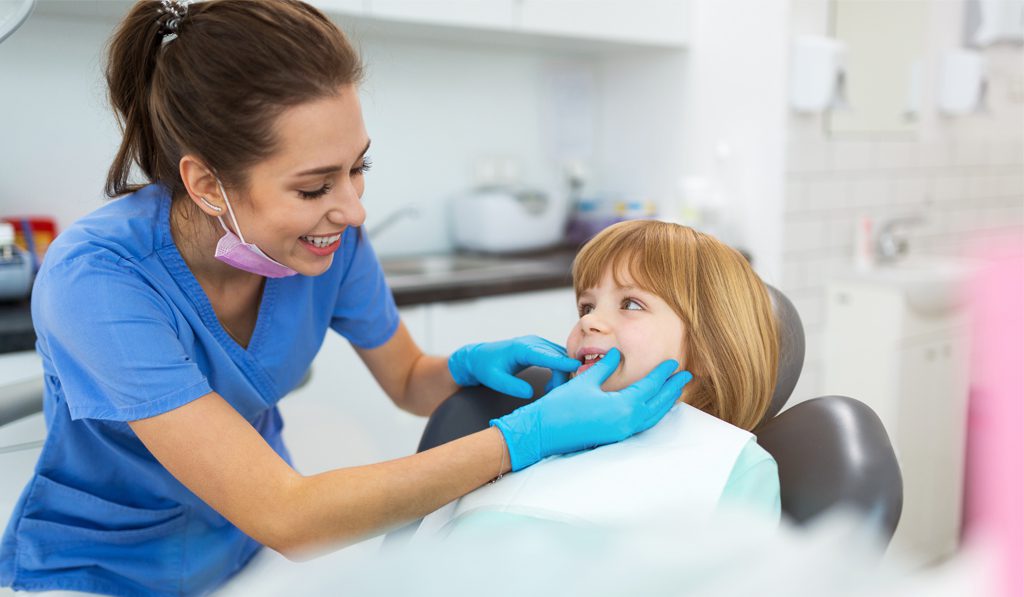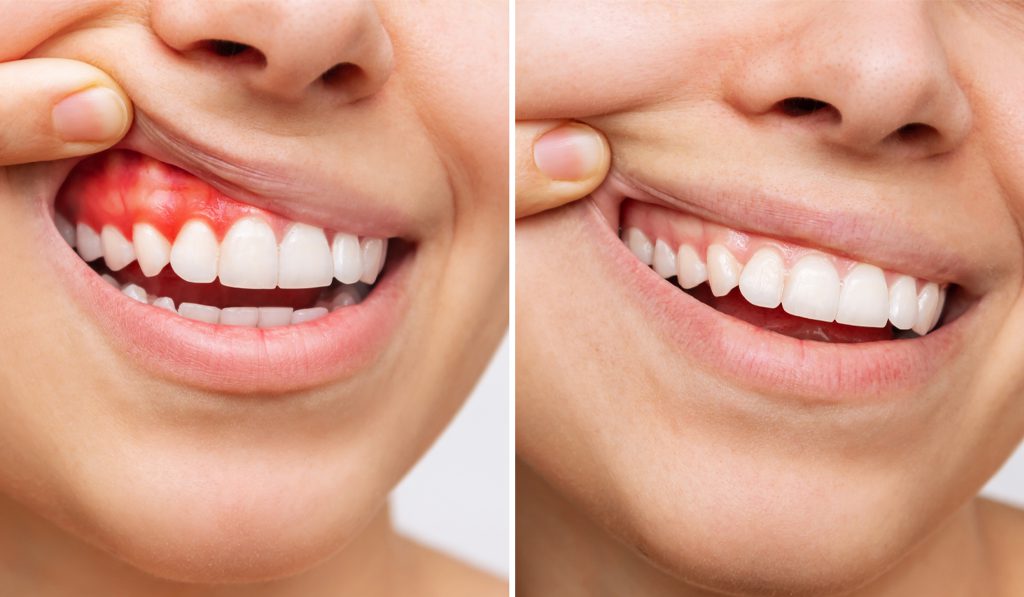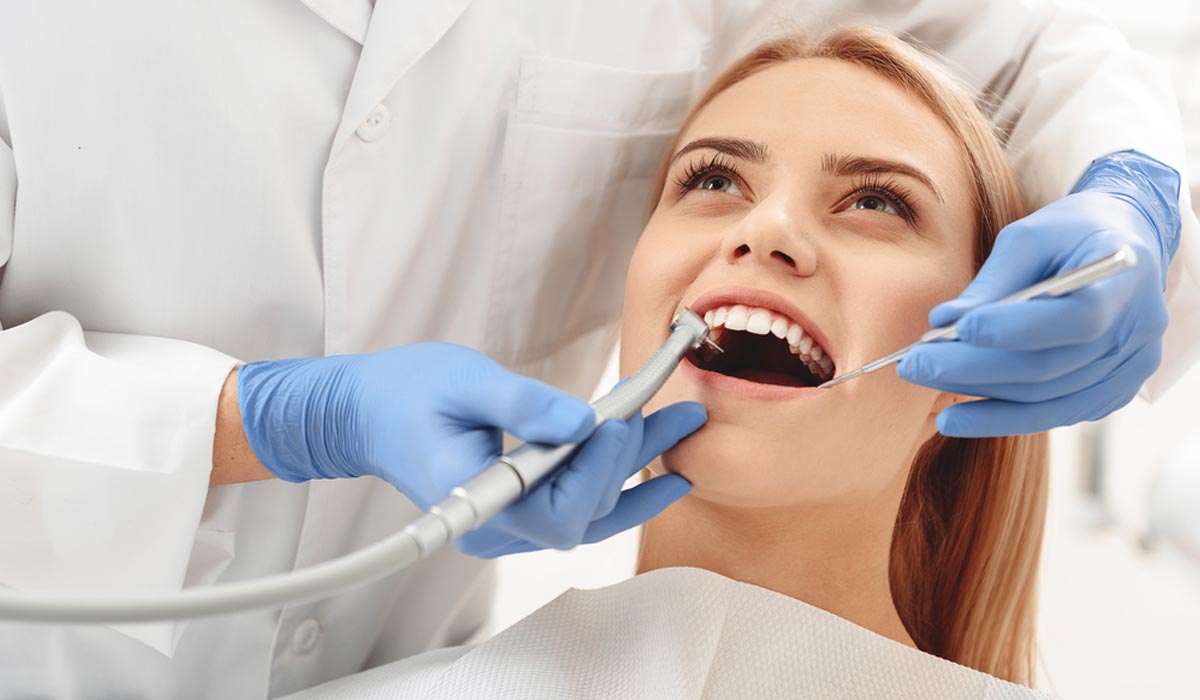Depression in Children: What to Know
There is a great misconception about depression! Many people assume that depression is a mental disease that occurs only in adults and old age people. But in reality, this is not the case. In present-day scenarios, most of the children suffer from this serious mental condition called depression. It is usual for children to feel sad, be angry, or irritated at times, but if these same emotions continue for a more extended period, it may be a problem. Sadly, most parents fail to recognize the depression of their children, and as a result, they are left without any treatment. Therefore, the parents must understand the signs, symptoms, and causes of childhood depression to prevent them from going through this mental condition.
What Is Childhood Depression?
Depression during childhood is different from the child’s regular emotions that they obtain throughout their childhood. Just because you see a child upset doesn’t mean they are suffering from depression. However, notice constant sadness that hinders their school life, academics, daily activities, sleep timings, eating habits, relationship with family and friends, or other interests. This may be a potential sign of depression. Even though depression is an extreme mental condition, it can be accurately treated with proper therapies and medication.
What Are The Causes Of Childhood Depression?
Serious life events may be a primary cause of depression. Children may go through a mental health condition due to severe family issues like watching their parents fight, separation of parents, or divorce. Other factors include genetics that can also lead to depression. Following are a few significant factors that can result in childhood depression –
- Chemical imbalance in the brain:Chemical imbalances in hormones and neurotransmitters can significantly impact how the brain responds to situations. This can majorly affect children’s emotions and behavior, resulting in high chances of experiencing depression.
- Environmental factors: Another major cause of depression can be the children’s environment where they reside. If their home environment is unstable, violent, stressful, and full of chaos and fights, it becomes likely for children to suffer depression. The school environment is equally responsible for the cause. Constant bullying and teacher’s violent or hostile behavior may build immense fear in children.
- Family members: Parents or grandparents who have a history of mental disorders or depression can also lead the children to experience the symptoms of depression.
- Traumatic incidents: Serious family issues such as a member moving out, parent’s separation, or other traumatic incidents like physical assault or abuse are the major factors that increase children’s chances of suffering from a mental health condition.
It is challenging to identify all the exact causes of depression as you never know which incident can mentally affect whom. However, you must keep in mind that if your child goes through depression, that doesn’t mean he is weak.
What are the symptoms of childhood depression?
The symptoms of childhood depression vary from one child to another. Often, this illness is ignored and left without diagnosis and treatment as it is mostly regarded as usual mood swings and normal psychological behavior of children. Various medical researches pointed out “masked depression,” where children’s depression was recognizable through their angry or irritated behavior. Even though this is common in children’s behavior, most kids also show dullness and sadness, just like adulthood depression. The significant symptoms include frequent mood swings, anger, irritation, lack of energy, and sadness. Every child doesn’t show these same symptoms. Based on different timings and situations, children will display various symptoms.
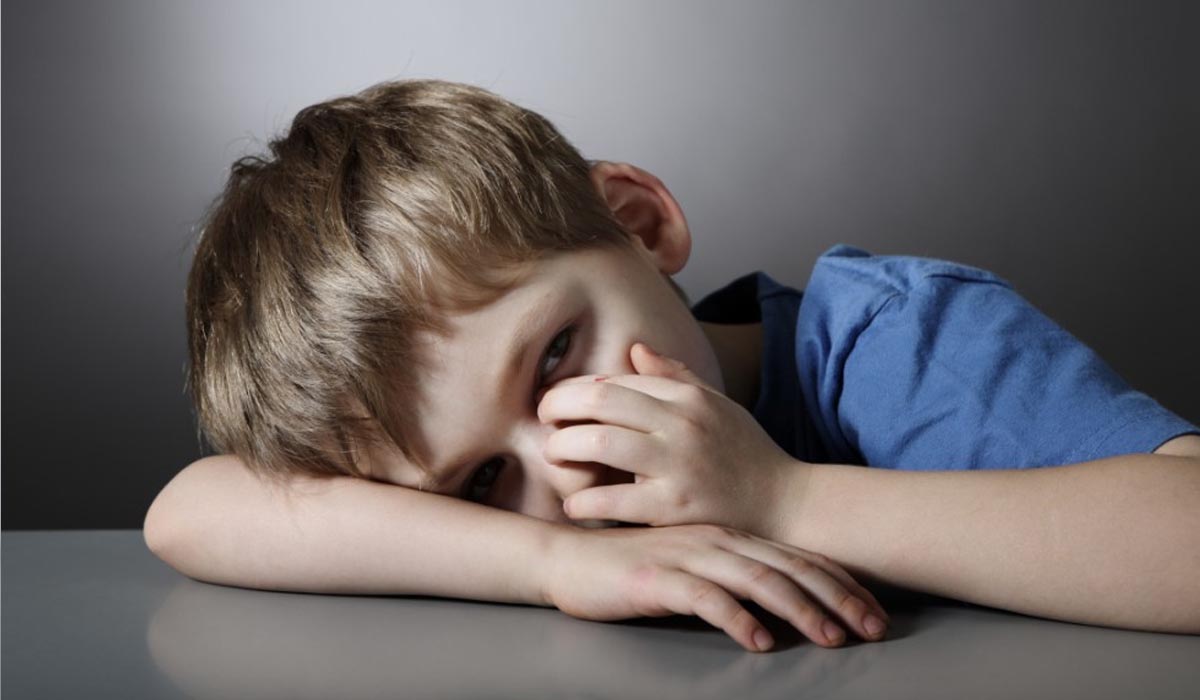
Symptoms of depression in children:
- Social Isolation, where children withdraw themselves from society or social life.
- Lack of interest and hope
- Fear of parent’s rejection
- A constant state of anger and irritation
- Persistent sadness
- Concentration difficulty
- Increased or decreased sleeping timings than usual
- Considerable changes in eating habits
- Excessive crying
- Weariness and lack of energy
- Frequent physical health issues such as headache, body ache, stomach ache.
- Weak memory or inability to think
- Constant thoughts of suicide
- Feelings of being inefficient
- Lack of potentiality and interest in participating in school events and activities, sports events, play with friends and zero excitement during festive events and other occasions.
Diagnosis of Childhood Depression
If you notice a few symptoms of childhood depression in your child’s behavioral changes, see that the symptoms continue for more than two weeks, then it is crucial to take your child to a doctor immediately. Make sure that your child has no physical issues behind these symptoms and that he obtains proper treatment. It would help if you took your child to a mental health care expert who is skilled, especially in treating childhood depression. If the doctor asks to speak to your child alone, try to convince your child to have a conversation with him.
The doctor would conduct a comprehensive mental and physical evaluation of your child. This evaluation would also include questionnaires and conversations with you (the parent) and with your child. Information regarding your child’s behavior from his school teachers, sports guide, classmates, and friends is required to understand whether the depression symptoms are persistent in your child’s daily activities and examine whether your child’s previous behavior has changed. A physical evaluation is also essential to examine whether any other health condition is the reason behind these depression symptoms. For example, vitamin deficiency, anemia, thyroid problems, lack of protein, and energy can also display similar symptoms, just like depression.
There is no psychological or medical test to identify depression accurately. However, personal information and interviews, and questionnaires for your child and you are crucial to diagnosing depression effectively. These questionnaires and therapies can also expose various other mental health issues that can be a prime factor of depression, such as OCD, conduct disorder, or ADHD in children. Even though there are no tests to identify depression, the doctor may conduct several psychological assessments to diagnose the child’s level and type of depression.
Depression classification: A child’s depression is diagnosed and classified into three different stages – Mild Depression, Moderate Depression, and Clinical Depression. Depression is classified into three stages based on the severity and number of symptoms and the level to which they occur in your child’s everyday life.
Treatment of Childhood Depression
If your child goes through mild depression, the doctor will first observe the symptoms before providing any treatment type. If the symptoms continue for more than 7 to 8 weeks, your child would be given psychotherapy even after consultation. If your child is diagnosed with clinical or moderate depression, the doctor will straightaway begin the treatment along with psychotherapy amidst the treatment. The combination of medication and psychotherapy together has proved to treat children with depression immensely. However, treatments for depression are not always the same. The doctor’s type of treatment for a particular child is mostly designed based on the seriousness and nature of the child’s depression.
Psychotherapy
As mentioned above, the doctor mostly recommends psychotherapy to the children who suffer from mild depression as the first step of treatment. And for adolescents who are diagnosed with clinical depression, a combination of medication and psychotherapy is recommended.
During the psychotherapy session, the mental health care expert will guide your child with the techniques required for your child to manage his symptoms of depression. With these techniques to control the symptoms, your child can effectively acquire the abilities to perform well in his school, exams, extracurricular activities, and everyday life. Two effective psychotherapy types are mostly used to treat children with depression- Cognitive behavioral therapy and Interpersonal therapy.
- Cognitive-behavioral therapy:CBT helps to enhance the mood of the depressive child by replacing his negative behavioral patterns and worrying thoughts with positive, inspirational thoughts.
- Interpersonal therapy: A therapy through which doctors help children understand how they can solve or manage their social problems or relationship issues and alleviate their social isolation behavior resulting from depression.
Childhood depression has the risk to throw a significant negative impact on children’s everyday life. Therefore, it is essential to observe and recognize the symptoms that may indicate your child is in depression. For children with mild depression, lifestyle changes can be beneficial in alleviating their depressive mood. Always encourage them to take care of their body. Ask them to consume nutritious food and offer them their favorite dishes.
Try to have an in-depth conversation with your children, ask them about their feelings without being judgemental, and give them the needed love, care, and support. Suppose you succeed in identifying the symptoms early and step forward to alleviate them. In that case, your children can quickly return on the right path before it gets too late, and they lose all their capabilities.

